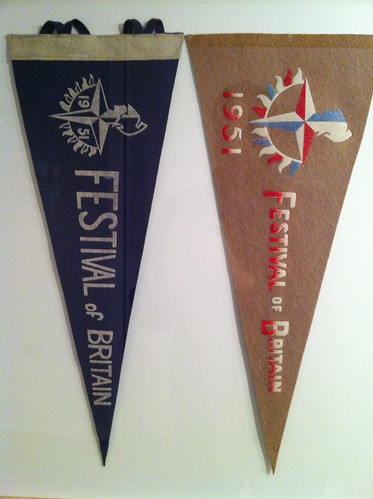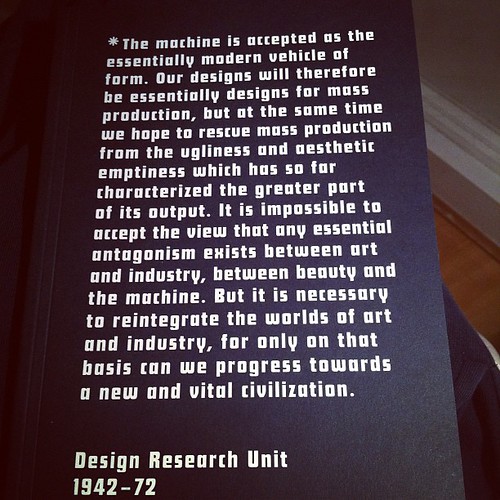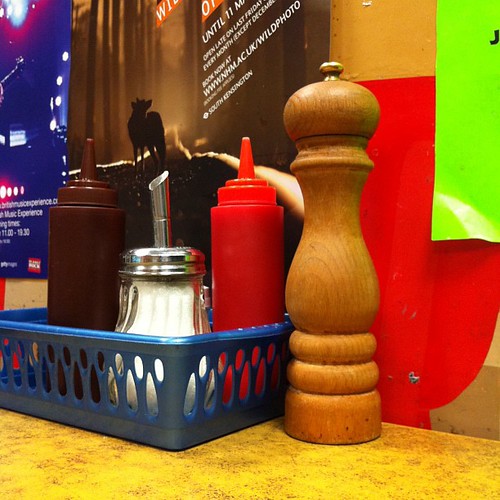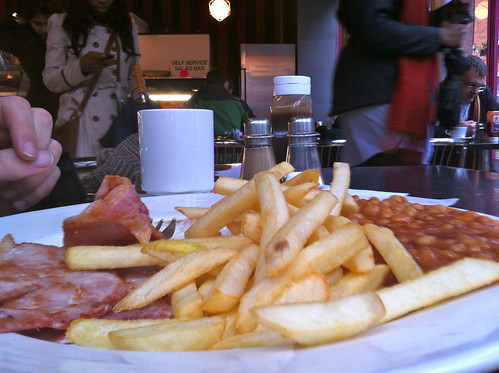Russell Davies
As disappointed as you are
About | Feed | Archive | Findings | This blog by email
« December 2012 | Main | February 2013 »
introducing little toaster
January 11, 2013 | Permalink | TrackBack (0)
back the good night lamp
Good Night Lamp on Kickstarter from Good Night Lamp on Vimeo.
Back the Good Night Lamp on Kickstarter. Back it and prove that the Internet of Things can be more personal, special and human than a bunch of internet fridges. Back it and help some of the nicest, smartest people I know build something magic. Just back it.January 10, 2013 | Permalink | TrackBack (0)
it's not complicated; it's just hard
Sometimes a phrase scrapes against me and I just know it's going to leave a mark forever. This is one, it's already a thing I say, pretty soon I'll think I invented it:
"It’s just change management. It’s not complicated; it’s just hard."
It's from The Atlantic's magnficient piece about the engineers and engineering behind the Obama campaign.
It reminded me of this video about Jerry Seinfeld writing a joke.
The main thing - it takes a lot more work than you might imagine.
And of this piece (and almost every piece) about Teller, of Penn and Teller.
"Sometimes magic is just someone spending more time on something than anyone else might reasonably expect”
Lots of things are like that. They're not complicated. They don't require brilliant, innovative strategies, they're just hard. They require more work and more effort and than anyone might reasonably expect. The best managers create organisational room for that to happen.
January 09, 2013 | Permalink | TrackBack (0)
motivating knights and pawns
Kindle book 41 was the first thing I read explicitly for work at GDS.
Every now and then Mike chucks a book at me. They've never been things it would occur to me to read otherwise, public policy etc is just not a world I know much about. But they've all been good so far. Normally I go and download it on the kindle anyway; so I can take notes.
This was Motivation, Agency and Public Policy: Of Knights and Knaves, Pawns and Queens by Julian Le Grand. It was a fascinating introduction to a new world of thinking. Got me thinking about why people do things. Not consumers, but public servants. People inside organisations, not outside them. Helped me look beyond the civil service cliches.
I didn't highlight a lot, partly because I was just ploughing through. I should go an reread it. A year on, I bet it'd be useful again.
"Behaviour is the product of an interaction between motivation and constraints"
"As Michael Power (1999: ch. 5) has argued, in circumstances where they are regularly audited professionals feel (rightly) that they are no longer trusted; they feel resentful at the auditing requirements imposed on them by the inspection agencies; they become less committed to the service and more inclined to pursue their self-interest."
"Efforts to understand and persuade are both a cause and a consequence of respect for others; hence, since respect for others is morally desirable, so are understanding and persuasion, and so is the mechanism that brings them about: market exchange. "
January 08, 2013 | Permalink | TrackBack (0)
the last great web problem
There were lots of good reasons to go and work for GDS - the assembled talent, the top leadership, the regular hours, the paraphenalia - and probably, above all that it represents the last great web problem.
(We know how to do lots of things on the web - publishing, retail, sharing, cats - but no-one's yet worked out how to do public services really well. I missed the big dotcom moments, I missed the BBC moment, I missed social networking, this felt like the last chance to work on a really big web poblem.)
But part of the reason was, also, some how, atmospheric. There was just something in the air about British designers solving big problems.
The Kenneth Grange exhbition had just been on at the Design Museum. We had a family cycle ride there.
It was inspiring, Grange's work showed you what good, ambitious British design could be like. That you could do interesting stuff at scale.
That summer was also the anniversary of the Festival of Britain. You don't need to hear more about that.
And, I came across this book. A history of the Design Research Unit:
It seemed relevant and appealing for a few reasons.
The preface says this about the DRU:
Formed in London in 1942, the Design Research Unit was the first consultancy in Britain to bring together expertise in architecture, graphics and industrial design. They pioneered a model for multidiscinplinary practice with an approach that was shaped by inter-war developments in artistic discourse and post-war trends in industry and communication; in particular the accelerated demand for corporate design...
...Initially under the charge of the writer Herbert Read and operating from offices shared with Mass Observation, the Design Research Unit was founded by advertising executive and patron of contemporary art Marcus Brumwell with designers Misha Black and Milner Gray. Following Read's essay, Art and Industry and the literature of International Constructivism the group outlined an intent to combine creative intelligence with technical research into materials and markets, seeking to bring 'artists and designers into productive relation with scientists and technologists.'
DRU was a nexus of all sorts of interesting stuff.
Herbert Read (anarchist, poet, and critic of literature and art) was closely associated with Unit One.
(Come to think of it, his description of how artist groups like Unit One might operate might be a good brief for the immediate future of RIG: "Practical things they can do in common: they can have a central office, an information bureau where the enquirer can find out about the nature of the works done by members of the group, their whereabouts and prices...They can hold joint exhibitions and share expenses connected with such exhibitions.")
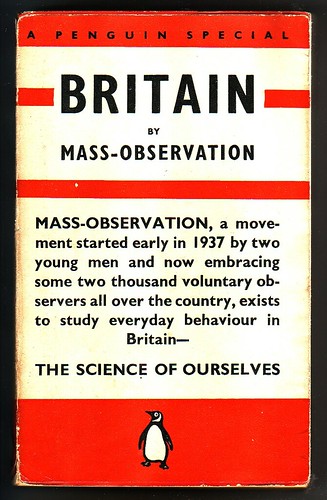
They shared offices with Mass Observation and a connection via the sponsorship of Marcus Brumwell and the Advertising Services Guild ("a group of medium-scale companies that counteracted a diminishing wartime market by pooling contacts and skills")
Richard and Su Rogers were briefly part of DRU (Su Rogers was Brumwell's daugther and they designed a lovely extension for their Marylebone offices. It looked like this:
It looks like this now, less good:

They anticipated all sorts of contemporary design/marketing chat:
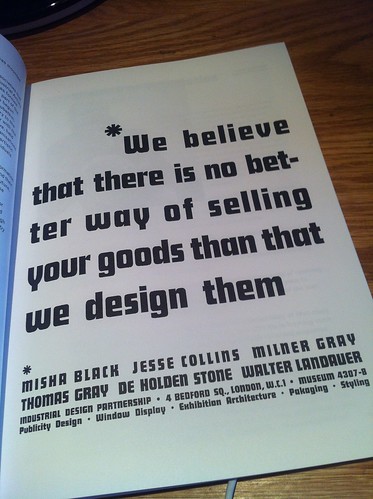
And, of course, the DRU designers made much of the world I grew up in, and made it better: Watneys pubs, ICI, City of Westminster street signs, the British Rail identity.
(And, personally, I'm getting fascinated by Brumwell, an adguy at the centre of so much interesting thinking, to be so connected to, and to recognise the value of so much art, design and architecture, and to have worked in advertising when it was more about useful explanation than empty branding. I'm going to look into him more.)
Anyway. To get back to my point. The GDS opportunity came along when all this stuff was in the air; DRU, the Festival of Britain, Kenneth Grange, Mass Observation. And I think they're useful and valid inspiration. I know it's easy to get trapped in nostalgia for those times and let's not forget that BR were terrible, despite having good corporate ID but, personally, I find all that more inspiring than the usual West Coast shininess. They seized a particular moment - post-war reconstruction - and did great things in new ways.
If we can do a fraction of that I'd be very happy.
January 07, 2013 | Permalink | TrackBack (0)
see what comes along
Kindle book 40 was Angelmaker by Nick Harkaway. Another splendid read.
On the stricture of tea:
"At the workbench, tea in hand (the approved commencement of a difficult task, the stricture of patience to be borne strongly in mind, lest one be hasty and make an irretrievable error early in the proceedings) he contemplates the fragments before him."
On not watching:
"Watching is a mug’s game. You watch for something, you think you know what it will look like. If it doesn’t look like that, it can walk right past you. The human brain, son, is a miracle of rare device, but it dreams and fabulates and it can be induced to deceive the eye. Remember the Monte? Yes? Well, this is like that. You watch too hard for one thing, you miss the other. So when you’re lookout, Joe, don’t watch for coppers. Just wait and see who comes along. You’ll know trouble when it turns up. That’s science, that is."
January 06, 2013 | Permalink | TrackBack (0)
such tidy nonsense
Kindle book 39. Thinking The Twentieth Century by Tony Judt, Timothy Snyder.
Lots of this went over my head. I skipped quite a bit. But the bits I could follow were extraordinarily good. I wish I'd read stuff like this when I was actually studying history. Maybe I'd have got more out of it.
"the paradox of distributed responsibility: bureaucracy dilutes and obscures individual moral responsibility, rendering it invisible and thus producing Eichmann and, with Eichmann, Auschwitz."
"Since neither present nor future information—whether about economics or anything else—is ever vouchsafed us in perfect form, planning is inherently delusory, and the more all-embracing the plan, the more delusory its claims (much the same can be, but rarely is, said of the notion of perfect or efficient markets)"
"What really mattered to intellectuals was a milieu: people whom you knew—or people who were like the people you knew—and the things that happened to them"
"It is actually much harder to write well about someone you admire: dismissing Althusser, ridiculing Martin Amis, diminishing Lucien Goldmann—child’s work. But while it is easy enough to assert that Camus was a great writer, Kołakowski a brilliant philosopher, Primo Levi our greatest Holocaust memoirist and so on, if you wish to explain precisely why these men matter so much, and what influence they have exerted, then you have to think a little harder."
"If you asked my colleagues: what is the purpose of history, or what is the nature of history, or what is history about, you would get a pretty blank stare. The difference between good historians and bad historians is that the good ones can manage without an answer to such questions, and the bad ones cannot"
"It seems that what history has going for it, and one of the reasons that it survives, even as literary criticism falls into crisis and political science becomes unintelligible, is precisely that its readers agree that it should be well written"
"That not only should we write well because that means that people buy our books and not only should we write well because that is what history is, but also because there aren’t that many crafts anymore that have a responsibility to the language. Whatever sort of responsible craftsmanship remains, we’re right in the middle of it"
"The job of the historian is to take such tidy nonsense and make a mess of it."
"You and I are not the people who put the furniture in the room—we are just the folks who label it. Our job is to say to someone: this is a large couch with a wooden frame—it is not a plastic table. If you think that it’s a plastic table, not only will you be making a category error, and not only will you hurt yourself every time you bump into it, you will use it in the wrong ways. You will live badly in this room, but you don’t have to live quite this badly in this room. That is to say, I profoundly believe that the historian is not here to rewrite the past. When we re-label the past, we do it not because we have a new idea of how to think about the category “furniture”; we do it because we think we have come to an improved appreciation of what kind of furniture we are dealing with. A piece of furniture marked “large oak table” may not always have been labeled thus. There must have been times when it seemed to people to be something else: the oak, for example, may have been so obviously part of it because everything was made of oak that no one would speak of it. But right now, the oak counts more because—e. g.—it’s an unusual material. So what we are dealing with is a large oak table, and it’s our job to bring out the emphasis."
"There are lots and lots of paths, real and potential, marked and unmarked, through this forest. The past is full of stuff. But if you don’t have a path through it, you stare at the ground, you search for footing, you can’t appreciate the trees"
"Intellectual activity is a little bit like seduction. If you go straight for your goal, you almost certainly won’t succeed. If you want to be someone who contributes to world historical debates, you almost certainly won’t succeed if you start off by contributing to world historical debates. The most important thing to do is to be talking about the things that have, as we might put it, world historical resonance but at the level at which you can be influential."
"The characteristic intellectual of the television age has to be able to simplify. So the intellectual of the 1980s and after is someone able and willing to abbreviate, simplify and target his observations: as a consequence, we have come to identify intellectuals with commentators upon contemporary affairs."
"The alternative is to be a “media intellectual.” This means targeting your interests and remarks to the steadily shrinking attention span of television debates, blogs, tweets and the like. And—except those rare occasions when a major moral issue arises or there is a crisis—the intellectual has to choose. He can retreat to the world of the thoughtful essay and influence a selected minority; or he can speak to what he hopes is a mass audience but in attenuated and reduced ways."
"The time has come to write about more than just the things one understands; it is just as important if not more so to write about the things one cares about."
January 05, 2013 | Permalink | TrackBack (0)
good / falling slowly
On January 4th 2012 I wrote this in my secret online diary:
"First day at the Government Digital Service. Was good. I think it's going to be rather interesting."
Obviously I'd started the day by meeting Ben at Diana's:
According to foursquare we lunched at Cafe Kozzy:
(It was not this lunch though, this was from later in the month)
That evening I finished this and stuck it up on Soundcloud. It wasn't especially a reaction to GDS, entirely coincidental, but I'm still rather pleased with it. If you want to skip straight to the magic head for about 1.40.
Falling Slowly by russelldaviesJanuary 04, 2013 | Permalink | TrackBack (0)
detail, cataloging, distinguishing one thing from another
Kindle book 38. Distrust That Particular Flavor by William Gibson. Full of meaty goodness.
"In writing speeches, curiously, one sometimes finds out what one thinks, at that moment, about something."
"The Walkman changed the way we understand cities."
"(This perpetual toggling between nothing being new, under the sun, and everything having very recently changed, absolutely, is perhaps the central driving tension of my work.)"
"Working in language expressed as a system of marks on a surface, I can induce extremely complex experiences, but only in an audience elaborately educated to experience this."
"But Sinclair’s faux Lovecraftian subtexts, like Moore’s blood-drenched conspiracies in From Hell, finally lose traction in the way that all conspiracy theories do: The description of an underlying, literally occulted order is invariably less complex than the surface reality it supposedly informs. Conspiracy theories and the occult comfort us because they present models of the world that more easily make sense than the world itself, and, regardless of how dark or threatening, are inherently less frightening."
"Understanding otaku-hood, I think, is one of the keys to understanding the culture of the Web. There is something profoundly postnational about it, extra-geographic. We are all curators, in the postmodern world, whether we want to be or not."
"The Japanese are great appreciators of what they call “secret brands,” and in this too they share something with the British. There is a similar fascination with detail, with cataloging, with distinguishing one thing from another. Both cultures are singularly adroit at reconceptualizing foreign product, at absorbing it and making it their own."
"Another reason, and this one is more mysterious, has to do with an ongoing democratization of connoisseurship, in which curatorial privilege is available at every level of society."
"The idea of the Collectible is everywhere today, and sometimes strikes me as some desperate instinctive reconfiguring of the postindustrial flow, some basic mammalian response to the bewildering flood of sheer stuff we produce."
"Any Swatch or Casio keeps better time, and high-end contemporary Swiss watches are priced like small cars. But mechanical watches partake of what my friend John Clute calls the Tamagotchi Gesture. They’re pointless in a peculiarly needful way; they’re comforting precisely because they require tending"
"Our hardware is likely to turn into something like us a lot faster than we are likely to turn into something like our hardware. Our hardware is evolving at the speed of light, while we are still the product, for the most part, of unskilled labor."
"If the content is sufficiently engrossing, however, you don’t need wraparound deep-immersion goggles to shut out the world. You grow your own. You are there."
"The physical union of human and machine, long dreaded and long anticipated, has been an accomplished fact for decades, though we tend not to see it."
January 04, 2013 | Permalink | TrackBack (0)
distinct

These are bad pictures I took while trying to get the hang of my rangefinder again.
It just struck me that, disappoint the blurrines, you can clearly tell what game I'm playing on my phone. Full marks to Letterpress.

January 04, 2013 | Permalink | TrackBack (0)



